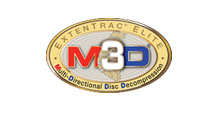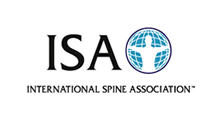
Spine Disorders
|
SIGNS AND SYMPTOMS Children
who develop discitis usually do not have symptoms of systemic illness. They may
not have a classic fever or an elevated white blood cell count. However, a test
referred to as the erythrocyte sedimentation rate (ESR) is usually elevated. Young
children who have discitis are usually very irritable and uncomfortable. The y
often refuses to move, more specifically refuse to sit, stand or walk.
Infectious discitis may be associated with abrupt and progressive back pain
with or without a fever. Discitis can
also occur via gradual almost insidious onset of severe back pain. The spine
complaints may or may not be associated with constitutional symptoms such as fever,
chills, sweats, malaise, nauseas, loss of appetite or other symptoms. The pain associated
with discitis often radiates to other areas of the body such as the shoulder,
hip, abdomen, leg, or groin. Later
in the stage the disease diagnostic imaging studies may reveal that the
adjacent vertebral margins of the infected disc have become. The degree of the
erosive change is related to the severity infectious process. CAUSES The causes
of infectious and non-infectious discitis include:
RISK FACTORS A certain group of individuals
are at risk for developing infectious discitis. Risk factors include:
If
you experience neck or back pain that interferes with your normal activities
for longer than a few days, call your doctor to be evaluated. If neck or back
pain increases when you cough or sneeze you may have a herniated disc. If you
experience neck or back pain that persists or progresses you should be seen by
a physician. If you lose control of your bladder or bowels, or if you develop
numbness or weakness in the arms or legs, seek prompt medical attention. If you
develop numbness and weakness in both legs you may have a condition referred to
as a cauda equina syndrome. This can develop secondary to compression of
several spinal nerves in the low back (lumbar spine). Causes include a cyst,
tumor, disc herniation or abcess.. This condition may require prompt surgery |
















